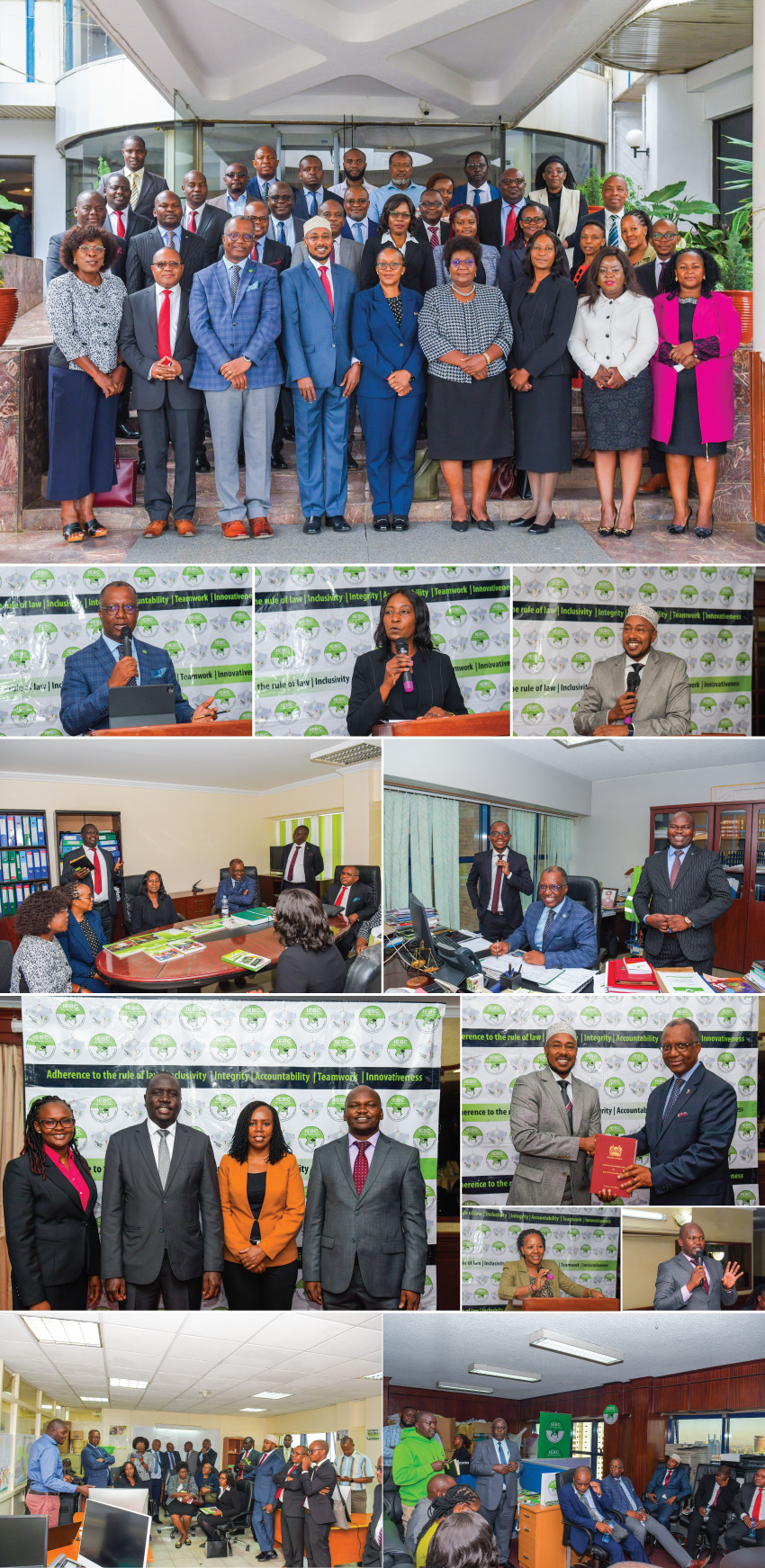
|
The Commission, last week played host to a delegation from Malawi Electoral Commission (MEC), which toured Kenya to learn more on electoral dispute resolution mechanisms and use of technology in elections. |
|
The 17-member delegation representing MEC, Malawi Judiciary and UNDP was led by the Malawi’s Justice of Appeal Ophrah Dorothy and was welcomed and hosted by the Commission Chief Executive Officer Marjan Hussein Marjan. |
|
“This is a mutual learning experience, IEBC and MEC will greatly benefit from this visit,” Marjan said. |
|
Dorothy said Malawi delegation will use the knowledge gained to develop a comprehensive Electoral Dispute Resolution (EDR) Framework to effectively manage electoral disputes and also procure electoral technology solutions to improve the efficacy of their electoral processes. |
|
Malawi’s intends to strengthen its ICT and cyber security in electoral processes and the Commission visited Kenya to benchmark on its successful deployment of technology in conduct of elections, especially in carrying out voter registration, voter identification and results transmission. |
|
“The tour provides invaluable insights that will inform review on Electoral Dispute Resolution (EDR) Framework, Rules of Procedure for the Malawi Judiciary, and the overall management of electoral matters,” observed Justice Dr. Chifundo Kachale, Chairman MEC. |
|
“Electoral disputes are bound to happen, we are here to learn from our peers IEBC on how they dealt with electoral disputes before and after the 2022GE as we prepare for the Malawi 2025GE scheduled for 16th September,” said Andrew Mpesi, the Chief Elections Officer MEC. |
|
Isaack Otieno, the UNDP Malawi Chief Technical Advisor - Elections, retaliated UNDP’s commitment to support EMBs in the conduct and management of elections as part of its #DeepeningDemocracy project. |
|
During their second day in Nairobi, the team was taken through the Management of Elections in Kenya with an overview of the 2022 General Election and toured the Commission’s premises. |
|
Director Legal Services, Chrispine Owiye, gave the history of the EDR in Kenya, briefly highlighting its implementation in 2013, 2017 and 2022 General Elections. |
|
“Article 88(4) (e) of the Constitution of Kenya, 2010 confers on the IEBC the mandate to settle electoral disputes, including disputes relating to or arising from nominations, but excluding election petitions and disputes after the declaration of election results,” said Owiye. |
|
Mr Owiye added, “In tandem with Article 88 (4) (e), Section 74 of the Elections Act, 2011 and Section 4 of the IEBC Act, 2011 further reinforces the Commission’s mandate on dispute resolution and requiring the determination of disputes within ten (10) days of lodging complaints.” |
|
“Election dispute resolution plays a critical role in the pre-election period. It provides a good platform for scrutiny of pre-election processes. It also ensures compliance with values and principles in the Constitution to protect political rights and enhance electoral justice,” said Ruth Makuthu, the Ag. Manager Legal Reforms Political Parties Liaison and Campaign Financing. |
|
The team was told that the Commission heard and determined 324 disputes from registration of candidates and further heard and determined 6 party disputes pre #2022GE. |
|
As part of IEBC’s commitment to moving Kenya towards a stronger democracy, the Commission allowed all complaints to be filed free of charge, and it heard and determined all disputes within 10 days. |
|
“In keeping with the prescriptions of Chapter Six of the Constitution of Kenya, 2010 on leadership and integrity, the Commission is obligated to ensure that only persons who meet the educational, moral and ethical requirements are registered and cleared to contest as candidates in election,” observed Senior Legal Officer, Nancy Koros. |
|
Later, the delegation met with Political Parties Disputes Tribunal (PPDT) and International Commission of Jurists (ICJ). This was besides visiting the Commission’s Election Technology Warehouse, the National Warehouse and The Bomas of Kenya facility that is used as the National Tallying Centre during the General Elections. |
|
At the Election Technology Warehouse, IEBC officers took the Malawi delegation through the Kenya Integrated Election Management System (KIEMS), Candidates Registration Management System (CRMS) and Results Transmission System (RTS). |
|
These offered the Malawi delegation an exclusive insight in the management of election and enhanced their understanding of conducting a free, fair and credible election. |